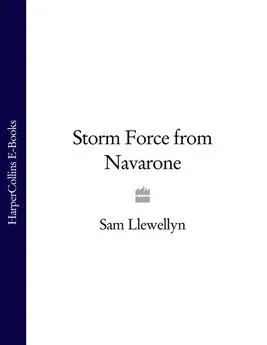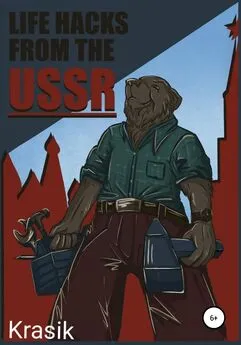Sam Llewellyn - Storm Force from Navarone
- Название:Storm Force from Navarone
- Автор:
- Жанр:
- Издательство:неизвестно
- Год:неизвестен
- ISBN:нет данных
- Рейтинг:
- Избранное:Добавить в избранное
-
Отзывы:
-
Ваша оценка:
Sam Llewellyn - Storm Force from Navarone краткое содержание
Storm Force from Navarone - читать онлайн бесплатно ознакомительный отрывок
Интервал:
Закладка:
The Lieutenant gritted his teeth. He desperately wanted to tell someone. It would be less lonely, for one thing, and he was really, terrifyingly, lonely. But a secret was a secret. ‘I’m sorry,’ he said. ‘I don’t … I’m not authorised.’
Mallory allowed his eyes to rest on this lieutenant. He really was absurdly young. His was the berserker’s bravery, frenzied and unbending. If the Gestapo got their hands on him, he would break like a twig.
Mallory sighed inwardly. He got up, opened the door and put his head out. There seemed to be a party going on. He said, ‘Andrea.’
The huge Greek padded across from his seat overlooking the square. His shoulders seemed to blot out the light in the little room. Mallory said, ‘If you won’t tell me, tell the Colonel.’
The SAS man frowned. He saw no colonel. He saw an unshaven giant with a huge moustache. He saw a pair of black eyes, eyes like the eyes on a Byzantine icon, that understood everything, forgave everything. ‘Colonel?’ he said.
‘Andrea is a full colonel in the Greek army.’
‘How do I know that’s not another bloody lie?’
Andrea sat down in the pink plush armchair. Suddenly the SAS man felt weak, and ill, and about fourteen years old. ‘You are frightened,’ said Andrea.
‘I bloody well am not,’ said the Lieutenant. But even as Andrea spoke, he could feel it draining away, all the team spirit, the gung ho, war-as-a-game-of-rugby. He saw himself as he was: a wounded kid who would die in a dirty little room, alone.
‘Not of dying,’ said Andrea. ‘But of yourself, of failing. I also am frightened, all the time. So it is not possible to let myself fail.’
He did not sound like any colonel the Lieutenant had ever heard. He sounded like a man of warmth and common sense, like a friend. Careful, said a voice in the Lieutenant’s head. But it was a small voice, fading fast.
Andrea’s eyes alighted on a crude wooden crutch, a section of pole with a pad whittled roughly to the shape of an armpit. ‘Yours?’ he said.
‘I’m going to use it,’ said the SAS man. ‘I can get around all right.’ It was not altogether a lie. He could move. It was just that when he moved, he could feel that bit of metal in his guts twisting, doing him damage. But that was not the point. The point was fighting a war. ‘Couple of days,’ he said. ‘Get into the hills.’
‘Why don’t you come with us?’ said Andrea, tactfully. This boy and his crutch would not last an hour in the mountains. He could see it in his face. ‘We will take you with us,’ said Andrea. ‘And you and I, and Miller and Mallory, will finish this operation.’
The Lieutenant’s eyes moved back to the first man, the thin one. ‘Mallory?’ he said. He saw newspaper front pages pinned to the board behind the fives courts. On the front pages were pictures of this man, with a pyramid of snow-covered rock in the background. That Mallory. He came to a decision. He said, ‘Jules told me. Guy Jamalartégui. At the Café de L’Océan in St-Jean-de-Luz. We would have told you. But … there’s been a lot of German activity. Radio silence, except in emergency. Jerry’s very quick.’
Mallory nodded. Radio detector vans would not be the only reason. The SAS liked to keep their intelligence to themselves, particularly when it was information that might help Jensen and SOE.
‘Thank you,’ he said. ‘Thank you very much.’ Sounds of revelry were percolating through the door. ‘Now. Can I get you some breakfast?’
Once the shock had worn off. Miller had almost started to enjoy himself. The coffee was undoubtedly coffee, and the bread was still warm from the oven, and while he was not a goat cheese enthusiast, in his present frame of mind he would have cheerfully eaten the goat, horns and all. And by the time he had finished eating, there had been stirrings behind some of the doors. At the Cognac stage, his glass had been filled by a dark girl in a red silk nightdress, and Miller was beginning to be reminded that while occupied France might be occupied, it was still France.
He lay back in his chair, and listened to the rattle of French and Basque from the maquisards, and sipped his Cognac. A corner of his mind was on the girl in the red nightdress. But most of it was out there in the square, patrolling the darkness under the trees and in the corners. Soon the village’s eyes would start opening and its tongues would start wagging. It was time they were out of here. The girl in the red nightdress ran her fingers through his crewcut. Miller grinned, a lazy grin that to anyone who did not know him would have looked completely relaxed. Which in a way, he was. Because Mallory thought it was okay to be here. So it was okay. In a life that had contained about ten times more incidents than the average citizen’s, Miller had never met a man he trusted more than the New Zealander.
He was not so sure about the Frenchmen. Jaime was sitting in a corner, coffee cup between his hands. Jaime seemed at least to know his way around. Now he was watching Hugues, who was fussing round Lisette. A lifetime spent in places where personality carried more weight than law had made Miller acutely sensitive to the way people got along. Miller had the distinct feeling that Jaime did not have a lot of time for Hugues.
Miller had his own doubts about Hugues. Sure, he knew his way round the Resistance. But he was an excitable guy. Lotta fuss that guy makes, thought Miller. And a lotta noise, too much noise. Lisette, now. They were stuck with Lisette. She was slow; she carried too much weight. But she was one tough cookie -
Jesus.
Lisette had been removing her outer clothing. She had been wearing an overcoat, two shawls, and a couple of peasant smocks of some kind. They had made her look like a football on legs. Dressed up like that, she had bicycled up a steep valley road without lights, climbed a vertical cliff and force-marched fifteen precipitous miles without sleep.
What dropped Miller’s jaw on his chest was not what she had done. It was the fact that she was just about the same shape without the winter clothes as with them. Face it, thought Miller. If you were Hugues, and Lisette was your girl, you would maybe feel a tad over-protective yourself.
Because the reason Lisette looked like a gasometer on legs was that she was at least eight months pregnant.
Somewhere a telephone rang, the tenuous ring of a hand-cranked exchange. Down the hall someone answered it, and started shouting in frantic Basque. Miller became suddenly completely immobile, listening. The voices had stopped. Cocks were crowing. Otherwise there was silence.
But behind the silence were engines. Lorry engines, a lot of them.
In the French frontier zone at this particular time in history, there was only one group of people who had a lot of lorries, and the fuel to run them.
Miller grabbed his Schmeisser and yanked the cocking lever. The girl in the red nightdress seemed suddenly to have vanished. Marcel the baker was standing up, smiling from a face suddenly grey and wooden. The engines were in the square now: four trucks with canvas backs. The trucks stopped. Soldiers were pouring out of the backs, soldiers with coal-scuttle helmets and field-grey uniforms, their jackboots grinding the wet cobbles of the square.
A staff car rolled into the square. A tall, black-uniformed officer got out, said something, and pointed at Marcel’s lorry. Two soldiers bayoneted the tyres. The lorry settled on its rims.
As Mallory put his head out of the SAS man’s door, Andrea’s hand went out and grabbed Marcel by the shoulder. Marcel was a big man, but Andrea held him at arm’s length with his feet off the ground. He said, ‘What are these troops doing here?’
Marcel’s face was a mask of horror. ‘I don’t know … I was assured …’
In Mallory’s mind, gears rolled smoothly and a conclusion formed. ‘It’s an SS brothel,’ he said. ‘Isn’t it?’
Marcel’s face turned a dull, embarrassed purple. ‘It is a cover,’ he said. ‘A good cover. Now, gentlemen …’
Andrea dropped him. Marcel rubbed his shoulder. He said, ‘Follow me, please.’ His voice was calm and urbane: the voice of the perfect host. Already the girls had cleared away the traces of the breakfast. He pointed into the SAS man’s room. One of the girls was holding open the door of the wardrobe. The wardrobe had no back. Instead, a flight of steps led down into darkness.
Mallory trusted Marcel. But someone had betrayed them.
Who?
Andrea went to help the SAS man off the bed. The SAS man pushed him away, reached for his makeshift wooden crutch and hauled himself moaning to his feet. As Miller brought up the rear, he could hear the battering of rifle butts on the cafe’s front door.
More rats in more traps, he thought. And all for a cup of coffee and a girl in a red nightdress.
Maybe the coffee had been worth it, at that.
The back of the wardrobe slammed behind them. They went downstairs and out into a small yard, wet and empty under the sky. At the back of the yard was a shed, the lintel of its door blackened by smoke. There was a powerful smell of baking bread.
From over the wall came guttural shouts, and the barking of dogs. ‘Vite,’ said Marcel, shooing them into the shed.
The shed was a bakehouse. There were two bread ovens. The one on the left was shut. The one on the right was open. In front of the oven door was a big stone slab. On the slab lay a metal tray, six feet long by four feet wide. A small, one-eyed man in a dirty apron did not even glance at them. ‘On the tray,’ said Marcel. ‘Two at a time.’
‘Where are the others?’ said Mallory.
‘In the brothel. They speak French, bien entendu. Their papers are good. Vite.’
Miller jumped up onto the tray, and lay with his boxes on the big wooden paddle. Mallory climbed up beside him. ‘When the tray stops, roll off,’ said Marcel. ‘Cover your faces.’
Mallory could hear German voices. A trap, he thought. Another, smaller trap. After this trap, absolutely no more -
He was lying on the tray with his pack on his stomach. He covered his face with his hands. Someone shoved the paddle. A ferocious heat beat on the backs of his hands. He thought of the parabolic brick roof of the oven, smelt burning hair. The ammunition, he thought.
But the heat was gone, and they were shuffling off the paddle and onto a stone surface that was merely warm. Mallory raised his head. It was dark, black as ink. After six inches his forehead hit the roof. There seemed to be air circulating.
The tray returned, bearing Andrea and the SAS man. The SAS man was breathing hard and tremulous as Andrea shoved him off the tray. Somewhere, stones grated. That’s it, thought Miller. You’ve got your bread oven, circular, made out of bricks. And there’s a little door in the back of it, and we’ve been pushed through, and now they’ve closed the door -
Scraping noises emanated from the oven.
- and now they are going to bake a little bread.
He tried to raise his head, to see where the air was coming from. He hit the ceiling. Eighteen inches high, he thought. And nothing to see. Buried alive.
He put out his hand, touched his brass-bound boxes. On the way, his hand touched Mallory’s arm.
The arm was rigid, vibrating with what must have been fear.
No. Not Mallory. Mallory was cool as ice. Mallory had scaled the South Cliff at Navarone, when Miller had been mewing with terror at its base.
All right, thought Miller. But down in the middle of every human being there is a place kept locked tight, and in that place lives the beast a person fears most. But sometimes the locks go, and the beast is out, raging in the mind, taking over all its corners.
Читать дальшеИнтервал:
Закладка:


![Антонин Згорж - Один против судьбы [Sam proti osudu]](/books/1068955/antonin-zgorzh-odin-protiv-sudby-sam-proti-osudu.webp)
![О Генри - С высоты козел [From the Cabby's Seat]](/books/1083418/o-genri-s-vysoty-kozel-from-the-cabby-s-seat.webp)





